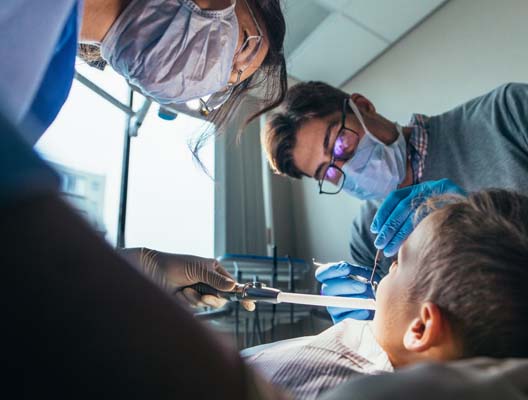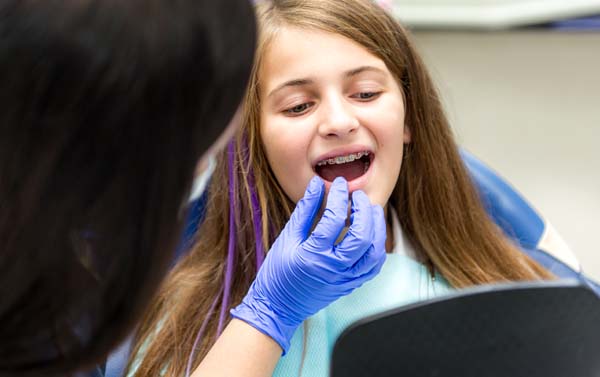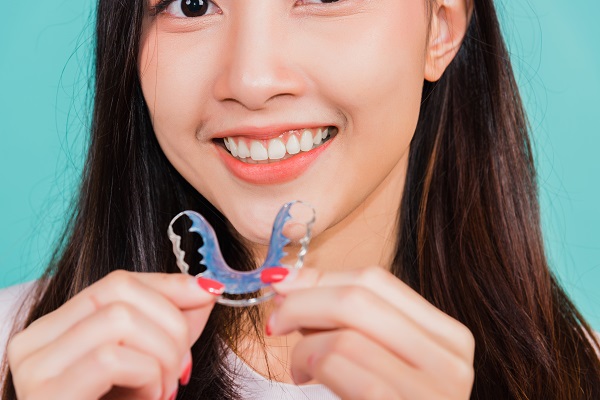FAQs About Orthodontics for Teens

Even though braces are common among teenagers, getting them is a new orthodontic experience for every patient. Teens and their parents tend to have many questions about braces and other orthodontic treatments for teens, when to get braces, and what having braces will be like. Here are some of the most common questions orthodontists hear from teenage patients and their parents.
What is the best age to get braces?
We recommend that teens get braces after their permanent teeth emerge and before puberty. This means the best time to get braces is between ages 9 and 14. However, if possible, do not wait until the child is nine years old to take them to the orthodontist for the first time. According to the American Academy of Orthodontics, children should have an orthodontic consultation at seven years old to determine if they would benefit from early treatment.
What do braces feel like?
The adjustment period for braces can bring discomfort. Many patients report feeling some pressure as the wires shift the teeth. While adjusting to the brackets can also be uncomfortable at first, especially if a bracket pokes into the inner lip or cheek, the discomfort is temporary. Orthodontic wax can be placed over the bracket to ease this pain. Any pain and discomfort should go away in a few days. It is normal for the patient to forget they have braces, at least until their braces have to be tightened.
What helps ease the pain after having braces tightened?
Braces are tightened every four to six weeks. Just like the first few days of having braces, patients report feeling discomfort after having their braces tightened. The orthodontist will provide a care package with tools that can help soothe the pain, such as bite wafers and orthodontic wax. To ease pain with a bite wafer, the patient must bite lightly on the wafer to stimulate the gums. Over-the-counter pain medication and oral anesthetics can also help manage any initial pain.
How long do you usually need braces?
Most teens will have braces for about one to three years. They will then need to wear a retainer all day (except when eating and drinking) for up to a year. At this point, the orthodontist will advise on how to taper off the retainer. This typically means they will only need to wear it while sleeping. Eventually, they will not need the retainer at all.
Is there a way to make braces less noticeable?
Yes, braces do not have to stick out. The orthodontist offers rubber bands in a variety of colors and shades — that includes clear rubber brands, which can make one’s braces less noticeable. Clear rubber bands are very popular for this reason. However, many patients enjoy experimenting with different colors. Some get their favorite color or sports team colors. Others may match their braces to their eye color, style, or even the season (such as orange braces for Halloween).
Orthodontics for teens
In addition to a picture-perfect smile, orthodontics for teens make it easier to take care of the teeth for years to come. Put your teen on the path to long-lasting dental health. Our team can discuss the options available, from braces to retainers and more.
Request an appointment here: https://www.myhawthorneorthodontist.com or call Hawthorne Orthodontics at (310) 921-8333 for an appointment in our Lawndale office.
Check out what others are saying about our dental services on Yelp: Orthodontics for Children in Lawndale, CA.
Recent Posts
A pediatric dentist works with your child to treat their condition and teach them the importance of oral health from a young age. Misalignment and malocclusions are quite common in children and adolescents as their teeth develop. There are several reasons a child might require braces. Treating these conditions early on can help guide their…
Generally, a retainer is the last vital stage of orthodontic treatment. The appliance, made from metal and plastic, is personalized for each patient to fit perfectly into the wearer’s mouth. After braces or other orthodontic devices have corrected the alignment of the teeth, the retainer functions to stop them from shifting back to their previous…
Invisalign® is a common type of invisible braces that is developed by Align Technology. Many dentists around the world have used this treatment to fix dental problems. Invisalign is basically a removable orthodontic appliance. It is often offered as an alternative to traditional solutions. It is a good option for people who want a less…
Oral health is foundational to good overall health. Through the help of an orthodontist and bite correction, difficulties with chewing or speaking can be overcome. The inability to ingest food or clearly articulate impacts both physical and mental health. Bite correction has the potential to change the course of an individual’s health and wellness.Changes in…


